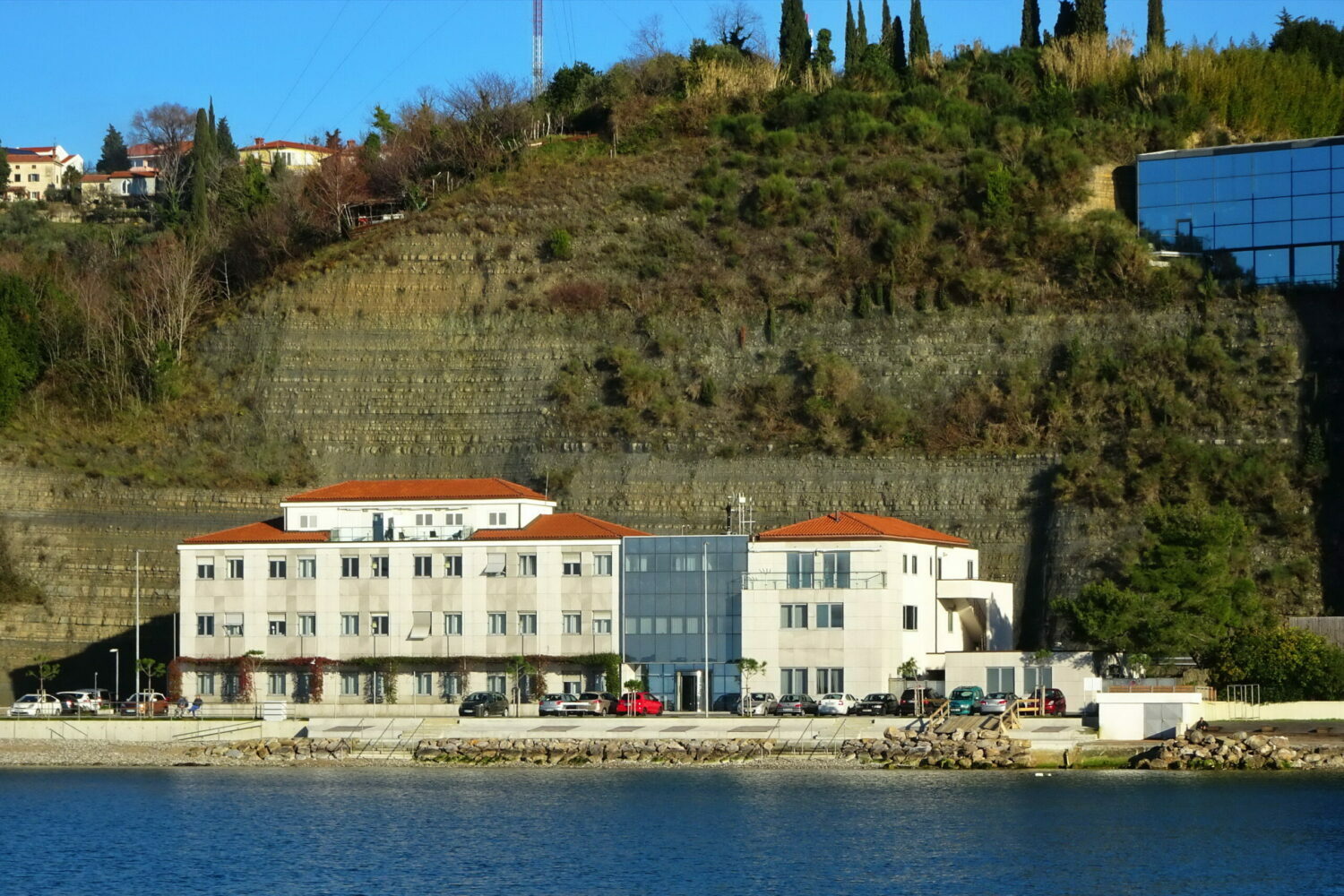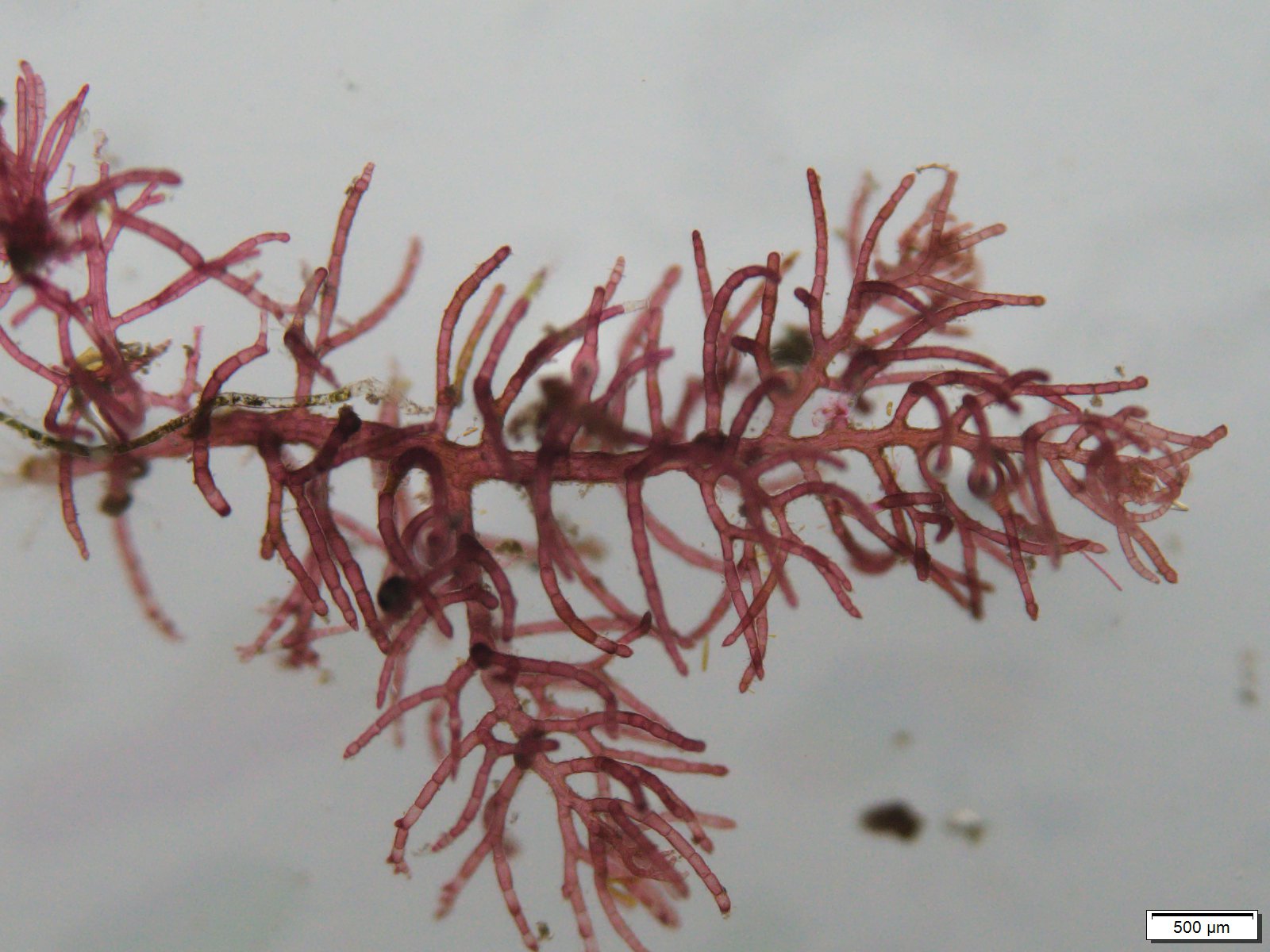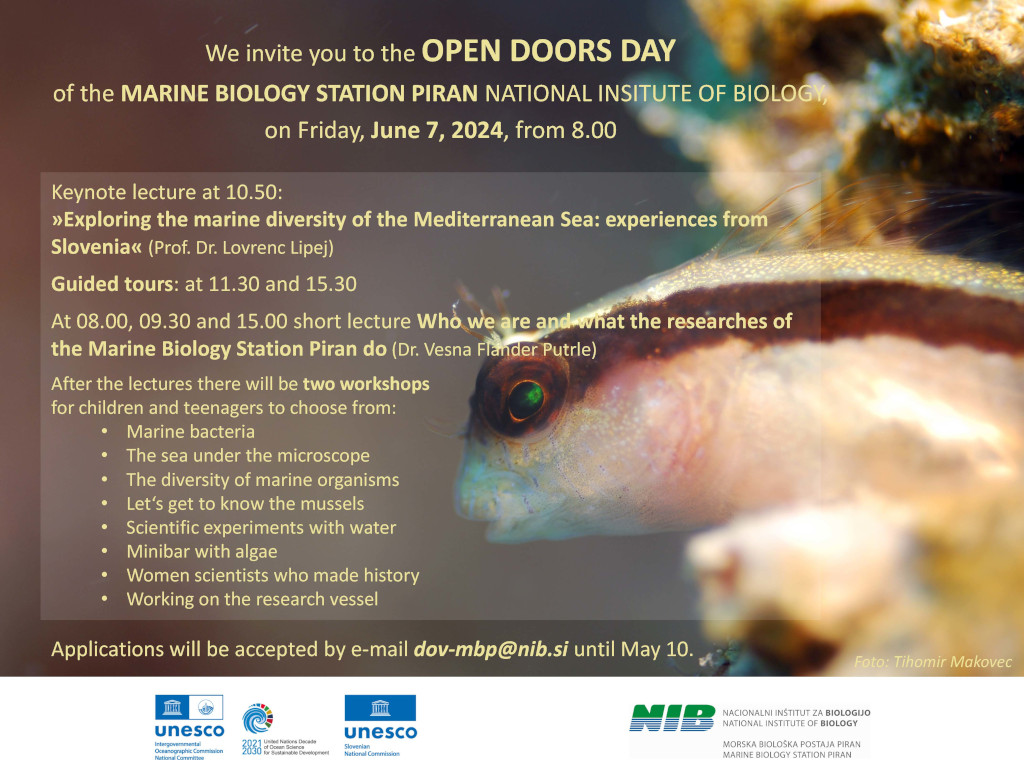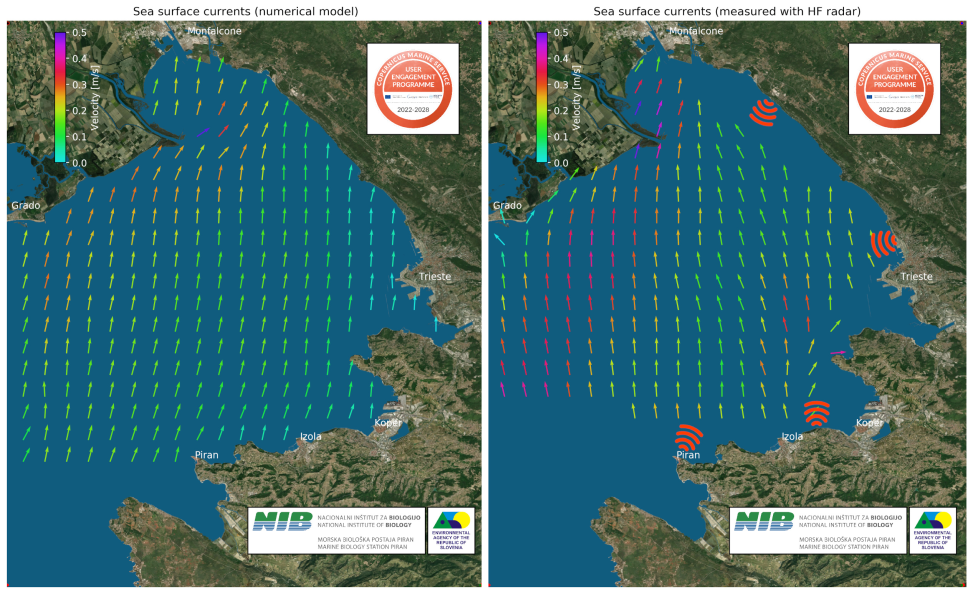
Call for expressions of interest for Demonstration Sites
On May 14th, 2025, the National Institute of Biology launched a call for expressions of interest for Demonstration Sites. Application deadline: May 28th, 2025.

Discovery of a new species of red algae in the Adriatic Sea
In January 2023, researchers from the Marine Biology Station Piran discovered an unusual red alga while monitoring non-indigenous marine species in the Izola area. The species, no more than 2 cm in height, was growing on limestone rocks in shallow waters. Closer examination confirmed that this alga belongs to the same genus as Dasysiphonia japonica, a non-indigenous species previously recorded in the Adriatic Sea. In collaboration with Italian scientists, further morphological and genetic analyses revealed that it is, indeed, a newly discovered species that has not yet been described and was named Dasysiphonia adriatica M.A. Wolf, K. Sciuto, A. Buosi, M. Orlando-Bonaca, A. Fortič & A. Sfriso sp. nov. The findings were published in the journal Mediterranean Marine Science in September 2024. You can read the full study at: Mediterranean Marine Science Journal.

National Institute of Biology participated in ŠtartUP 2024
ŠtartUP is a sports and social event organized by the University of Primorska to kick off the new academic year. The event was organized on 5 October in Koper. At the event participated more than 500 participants, most of them were students. Both freshmen and senior students connected with each other and with more than 55 local organisations, associations, institutions and companies that participated in the event. The aim was to raise students' interest in their services and future job opportunities.

Spreading of a pollutant in the Gulf of Koper
The Marine Biology Station Piran of the National Institute of Biology, in collaboration with the Slovenian Environment Agency, has developed a high-resolution model to predict the dispersion of pollutants from the Central Wastewater Treatment Plant of Koper under the influence of surface currents in the Gulf of Koper.

You are invited to the Open Doors Day at the Marine Biology Station Piran of the National Institute of Biology!
On the occasion of World Oceans Day, we invite you to visit us on Friday, June 7, 2024, at the Open Doors Day of the Marine Biology Station Piran of the National Institute of Biology.
You can take part in guided tours, interactive workshops for children and young people and interesting lectures and presentations.

Overhaul of the oceanographic buoy Vida
Dear users of buoy data,
The oceanographic buoy Vida will be overhauled by mid-May 2024. On Tuesday, April 2 (or when the sea is calm), we plan to disconnect the instruments on the oceanographic buoy Vida and move the buoy to Marina Portorož on the second day, where major maintenance work will take place. We apologize to all users of the oceanographic buoy Vida website for the loss of data.

Forecasting surface currents in the Gulf of Trieste
The Marine Biology Station Piran of the National Institute of Biology, in collaboration with the Slovenian Environment Agency, has developed a high-resolution model for predicting surface currents in the Gulf of Trieste as part of the Mercator Ocean Copernicus Marine User Engagement project.

Hunting for novel compounds at the bottom of the Adriatic Sea
Twenty metres below swimmers and watercraft, a cornucopia of creatures thrives at the bottom of the sea. This stable environment constitutes the habitat of crayfish, sea stars, flatfish, worms, and even microscopic creatures. Some of these microbes do not need air to live. Instead, buried in the sediment they slowly consume whatever organic matter they encounter. To do so, these “cleaners of the sea” produce enzymes and substances that may hold the key to cure diseases and improve our health. In search of such compounds, researchers at the National Institute of Biology (NIB) in Slovenia embarked in January on the research vessel Sagita (1-2). Tihomir Makovec, the head of the diving unit, operated underwater probes to capture samples of the sediment (3) in front of the city of Piran (Pirano) (4). Later, researcher, Luen Zidar, transferred them into the laboratory to grow them on agar plates (5). Patience will be key; cultivation of sea soil bacteria is a slow process that oftens requires months. And so, the hunt for potential new substances begins.

Planned maintenance of the underwater camera at Cape Madona
Dear underwater camera web page visitor!
The underwater camera at Cape Madona was turned off on 15 September 2023 for relocation purposes. Details about the new installation will be available soon.
Colleagues from Marine Biological Station Piran, National Institute of Biology wish you all the best!

Pollution in marine sediments: how to improve data quality
NIB, together with the Italian and European institutions, including OGS, ISPRA and HCMR, participated in a study on the Eastern Mediterranean that proposes a method to improve the quality control of data on pollutants
 NIB - MORSKA BIOLOŠKA POSTAJA PIRAN
NIB - MORSKA BIOLOŠKA POSTAJA PIRAN

